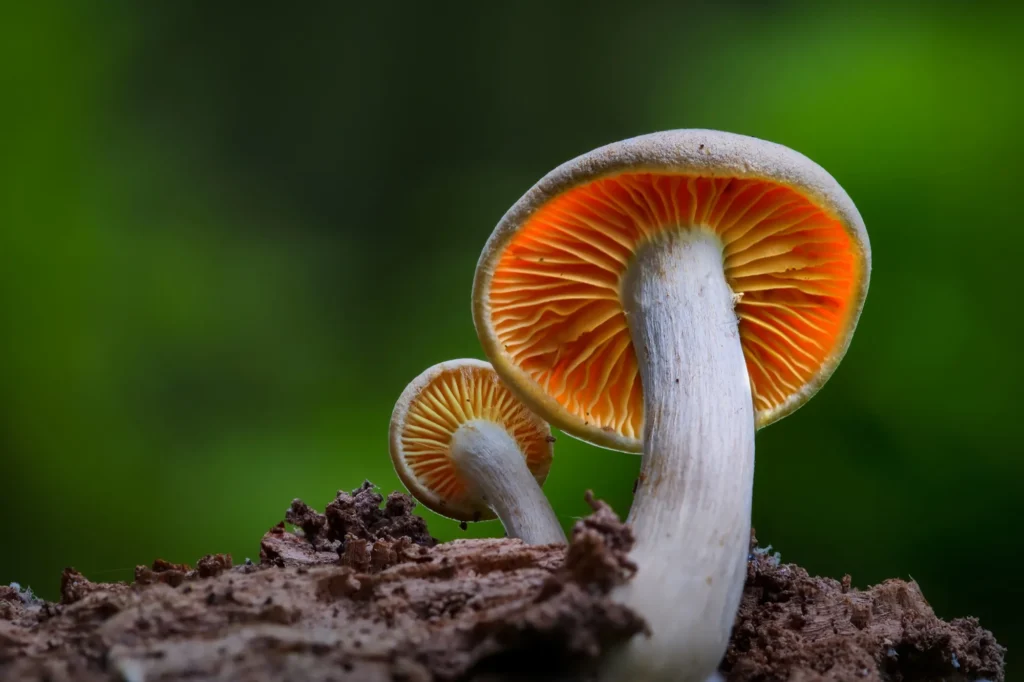In 2024, the buzz around the Portobello mushroom conspiracy is stronger than ever, with growing concerns about hidden health risks linked to these popular mushrooms. The main worry is about a chemical called agaritine, which some studies suggest might cause cancer, especially if the mushrooms aren’t cooked well. There are also fears about pesticides used in mushroom farming and the lack of clear information about how these mushrooms are grown.
So, is the Portobello mushroom conspiracy real? The answer isn’t a simple yes or no. While there are some risks, especially if eaten raw, cooking Portobello’s properly and eating them in moderation can make them safe. This update looks at the latest research and expert views to find out if these claims are real threats or just overblown fears. Are Portobello mushrooms safe to eat, or is there more to the story? Let’s find out.
Problem: The Hidden Truth About Portobello Mushrooms
Portobello mushrooms are loved by many. They’re often used as a tasty, meat-like alternative in burgers, salads, and stir-fries. They’re easy to cook, and many people see them as a healthy choice. But recently, a surprising theory has come up, making people question whether these mushrooms are as safe as they seem.
The “Portobello Mushroom Conspiracy” is all about the idea that these popular mushrooms might have hidden dangers that we’re not being told about. Some people believe that eating them could expose us to harmful substances, and that food companies and even health experts are not being fully honest with us.
But is there any truth to this? Or is it just another baseless theory? Let’s dig into the facts and find out what’s really going on with Portobello mushrooms .
Agitate: Portobello Mushrooms—Are They Safe?
What if I told you that Portobello mushrooms might contain chemicals that could harm your health? This idea revolves around a compound called agaritine, which is found naturally in Portobello mushrooms and other similar varieties. Agaritine is thought to have cancer-causing properties, especially when eaten raw or not cooked well. This has made some people very concerned.

What the Studies Say About Agaritine
Research on agaritine has shown mixed results. Some studies say that cooking mushrooms gets rid of most of the agaritine, making them safe to eat. But a few studies, like one published in 1986 in the Journal of Food Science, suggest that small amounts can still be left behind, especially if mushrooms are not cooked properly.
Dr. Andrew Weil, a well-known doctor who promotes natural health, even warned against eating Portobello mushrooms due to this potential risk. His comments sparked a lot of debates, with some people becoming scared to eat these mushrooms altogether.
The Mushroom Industry’s Reaction
The mushroom industry, of course, was quick to deny these claims. Groups like the American Mushroom Institute argue that the agaritine levels in Portobellos are too low to pose any real risk, especially when the mushrooms are cooked. They say that the fears are overblown, and eating Portobello mushrooms is perfectly safe.
But some people are skeptical of these assurances, comparing them to how the tobacco industry once tried to downplay the dangers of smoking. Is the mushroom industry just trying to protect its profits?
Concerns About Pesticides
Another part of the Portobello mushroom conspiracy has to do with the chemicals used in growing them. Portobello mushrooms are often grown indoors under controlled conditions, but this sometimes involves the use of pesticides and other chemicals to keep pests away and improve the yield.
A report by the Environmental Working Group (EWG) noted that Portobello mushrooms could have pesticide residues. Although the levels detected were within safety limits, there are still concerns about eating small amounts of these chemicals over time.
Critics argue that regulations may not be strict enough, and that the unique way mushrooms are grown could mean they are exposed to more chemicals than other types of produce.
Solution: How to Safely Enjoy Portobello Mushrooms
So, should you stop eating Portobello mushrooms? Not necessarily. Here are some simple ways to reduce any potential risks and still enjoy them.
1. Cook Your Mushrooms Well
Cooking is your best defense against the risks of agaritine. Heat breaks down this compound, significantly lowering any potential danger. So, always cook your Portobello mushrooms—whether you’re grilling, sautéing, or roasting them. This simple step makes a big difference.
2. Choose Organic Mushrooms When Possible
If you’re worried about pesticides, try to buy organic Portobello mushrooms. Organic farming uses fewer synthetic chemicals, and while it’s not 100% chemical-free, it’s a safer choice. Organic mushrooms follow stricter guidelines, reducing your exposure to unwanted substances.
3. Eat in Moderation
As with anything, moderation is key. Eating Portobello mushrooms occasionally as part of a balanced diet is unlikely to cause harm. Problems mainly arise when you eat a lot of them regularly, especially if they’re raw or undercooked.
4. Stay Updated on New Information
Food safety information can change over time as new studies come out. Keeping up-to-date with the latest research helps you make the best decisions about what you eat. Stay informed about any updates regarding Portobello mushrooms and health guidelines.
5. Mix Up Your Diet
A great way to protect your health is by eating a variety of foods. Don’t rely on Portobello mushrooms—or any other single food—too much. Include a range of veggies, proteins, and grains in your meals. This helps ensure you’re getting the nutrients you need and minimizes any risks from specific foods.
Conclusion: A Balanced View on Portobello Mushrooms
While the Portobello Mushroom Conspiracy has stirred up some real concerns, it’s essential to keep things in perspective. Experts agree that eating a variety of vegetables, including mushrooms, is beneficial and that the risks are low if you take simple precautions.
Are Portobello mushrooms hiding some secret danger? Probably not. But this debate is a good reminder to always pay attention to what we eat, stay informed, and make choices that feel right for us. By cooking your mushrooms, choosing organic when you can, and enjoying them in moderation, you can safely enjoy Portobello’s without getting caught up in the hype.
So, next time you’re about to bite into that delicious Portobello burger, you’ll know exactly what you’re getting into—and that’s what really matters.




